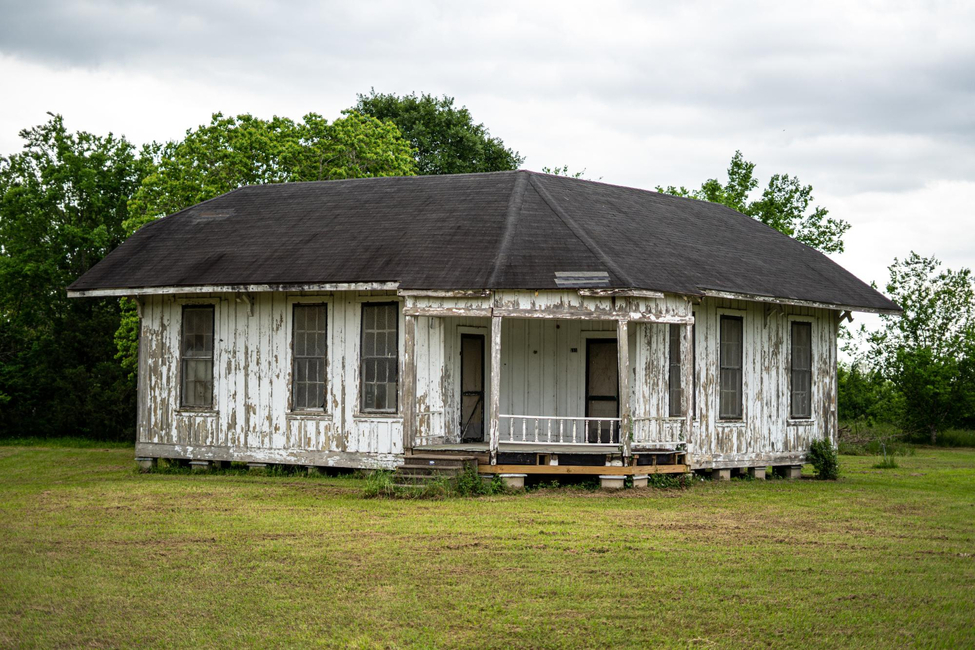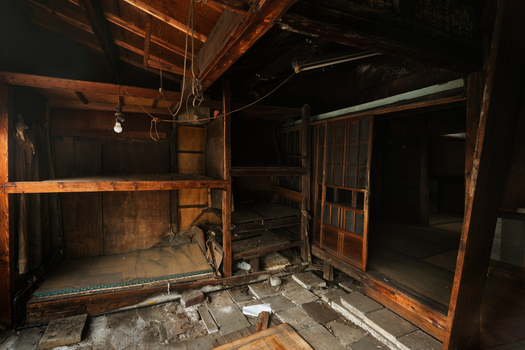Yes, you can sell a house in poor condition through three proven methods: as-is cash sales (fastest closing), budget improvements (moderate investment), or major renovations (highest investment). Cash buyers purchase properties regardless of condition without requiring repairs, inspections, or traditional financing. Strategic low-cost improvements like deep cleaning, fresh paint, and minor repairs can increase marketability while keeping expenses manageable. Complete renovations addressing structural, electrical, and plumbing issues maximize sale prices but require significant upfront investment and extended completion time. Market conditions, neighborhood comparable sales, and return-on-investment calculations determine the optimal selling strategy. Properties with safety hazards, structural damage, or code violations typically benefit most from direct cash sales to investors who specialize in distressed properties.
Properties constantly require upkeep and regular care to maintain their structural integrity and appearance. This ongoing maintenance cycle can become overwhelming for property owners, particularly those preparing to sell. The continuous nature of home repairs creates financial and time pressures for homeowners. When selling becomes a priority, addressing these maintenance issues becomes even more critical.
Market buyers actively search for property defects that could justify lower offers or withdrawal. Major structural problems like damaged roofing, deteriorated decking, or foundation issues raise immediate concerns. Cosmetic problems such as peeling wallpaper or outdated finishes also impact buyer interest. Even minor issues like plumbing leaks, worn paint, or flooring damage accumulate into significant concerns.
Properties with roof damage, water damage, or other repair needs face challenging market conditions. Traditional market sales become complicated when properties require extensive renovation work before occupancy. Buyers often avoid properties labeled as requiring significant repairs or improvements.
Fast sales require addressing factors that create negative buyer impressions about property condition. Both minor and major repair issues can discourage potential buyers from making offers. Avoiding “fixer-upper” classification helps maintain broader market appeal and competitive positioning. Alternative selling methods like cash investors provide options for properties needing extensive work. These approaches bypass traditional buyer concerns about property condition and required repairs.
Easy Ways to Sell Properties Needing Major Repairs
Identifying Properties That Need Significant Work
Determining whether your property requires extensive repairs depends on various factors and individual perspectives. Property conditions fall into specific categories that help classify the level of work needed. Professional assessments provide the most accurate evaluation of a property’s current state according to HUD housing standards.
Properties That Cannot Be Occupied Safely
Here are the main categories that indicate a property needs significant attention:
- Uninhabitable Properties: Structures so deteriorated that occupancy becomes dangerous or legally prohibited for residents
- Serious Safety Hazards: Major electrical problems including outdated wiring systems or exposed electrical components throughout the structure
- Critical Plumbing Failures: Broken water systems, leaking pipes, or malfunctioning water heating equipment requiring immediate professional intervention
- Structural Damage: Severe roof deterioration, foundation problems, or chimney issues that compromise the building’s integrity
- Health Risks: Presence of black mold, asbestos materials, or active termite infestations that pose serious health concerns
- System Failures: Non-functioning heating, ventilation, or air conditioning systems that affect habitability and comfort levels
Professional inspectors typically document these issues in detailed reports that specify required repairs. These assessments help property owners understand the scope of work needed before marketing through traditional selling methods.
Properties With Fair Condition Ratings
Properties with habitable conditions but multiple repair needs often receive “fair condition” ratings from inspectors. These situations present opportunities for strategic improvements before selling through traditional market channels.
Here are common issues found in properties with fair condition ratings:
- Electrical Concerns: Minor wiring problems or outdated electrical panels that need professional updating for safety compliance
- Plumbing Issues: Functional but aging pipes, fixtures, or water pressure problems that affect daily use
- Moderate Roof Damage: Repair needs that don’t compromise structural integrity but require attention for weather protection
- Wood Deterioration: Rotting deck boards, window frames, or other wooden components that need replacement or restoration
- Foundation Concerns: Minor settling issues or small cracks that should be monitored and potentially repaired
- Outdated Spaces: Kitchens or bathrooms with functional but aging fixtures, appliances, or design elements
- Flooring Problems: Damaged hardwood, worn carpeting, or tile issues that affect appearance and property value
- Fixture Malfunctions: Non-working light fixtures, cabinet hardware, or other interior components requiring repair or replacement
Traditional market sales typically require addressing most of these concerns to attract qualified buyers. Cash sale options provide alternatives for properties needing extensive work without requiring upfront repairs.
Properties With Good Structure But Maintenance Needs
Properties with good structural foundations but general maintenance needs represent another category requiring attention. These cosmetic and minor repair issues can significantly impact buyer interest and final sale prices according to real estate industry statistics.
Here are maintenance concerns that affect property marketability:
- Interior Presentation: Cluttered or poorly maintained living spaces that detract from the property’s overall appeal
- Outdated Room Designs: Spaces with aging decor, color schemes, or layouts that don’t meet current buyer preferences
- Floor Staining: Carpets, hardwood, or other flooring materials showing wear, discoloration, or damage from daily use
- Paint Deterioration: Peeling, faded, or chipped paint on interior or exterior surfaces that creates maintenance concerns
- Aging Finishes: Outdated fixtures, hardware, or trim work that makes spaces appear neglected or behind current trends
- Landscape Neglect: Overgrown yards, dead plants, or poorly maintained outdoor spaces that affect curb appeal
- Exterior Weathering: Faded siding, worn roofing materials, or other external elements showing age and weather damage
These cosmetic issues often require less investment than major repairs but still impact buyer perceptions. Addressing presentation concerns can improve marketability and potentially increase offers from traditional buyers.
Selling Properties That Need Major Work
Properties requiring extensive repairs can still be sold successfully through various strategic approaches. Multiple selling methods exist regardless of a property’s current condition or repair needs. Professional guidance helps property owners choose the most suitable selling strategy for their specific situation.
Here are the main approaches for selling properties needing significant work:
Selling Properties Without Making Any Repairs
Property owners facing financial constraints or time pressures have viable selling options without making improvements. Companies that buy houses for cash specialize in purchasing properties in their current condition regardless of repair needs. This approach eliminates the stress and expense of coordinating multiple repair projects before listing.
Here are the key benefits of selling properties as-is:
- No Repair Requirements: Properties sell in their exact current condition without any improvement obligations
- Fast Transaction Process: Cash sales typically close within weeks rather than months like traditional financing
- No Financial Investment: Sellers avoid spending money on repairs, renovations, or staging expenses
- Immediate Relief: Property owners can move forward with their plans without delay or additional stress
- Buyer Responsibility: New owners handle all repair work, cleanup, and improvement projects after purchase
- Flexible Scheduling: Closing dates accommodate seller timelines and moving requirements
- Guaranteed Offers: Cash buyers provide firm purchase commitments without financing contingencies
Cash buyers take complete responsibility for all necessary repairs and improvements after closing. Sellers receive offers based on current property conditions and can close according to their preferred timeline when they want to sell urgently.
Making Budget-Friendly Improvements Before Selling
Strategic low-cost improvements can enhance property marketability without requiring major financial investments. Cosmetic updates and minor repairs often provide good returns while keeping expenses manageable. This balanced approach helps maintain competitive positioning in traditional markets according to Consumer Finance Protection Bureau guidelines.
Here are effective low-cost improvements that boost property appeal:
- Interior Cleaning: Deep cleaning throughout the property creates immediate positive impressions with potential buyers
- Fresh Paint: New paint colors update spaces affordably while covering minor wall damage or staining
- Fixture Updates: Replacing outdated light fixtures, cabinet hardware, or faucets modernizes spaces inexpensively
- Flooring Touch-ups: Professional cleaning, minor repairs, or area rugs can improve flooring appearance significantly
- Curb Appeal: Basic landscaping, exterior cleaning, or simple yard maintenance enhances first impressions
- Decluttering: Removing excess belongings makes spaces appear larger and more appealing to buyers
- Minor Repairs: Fixing leaky faucets, squeaky doors, or loose handles demonstrates property maintenance
These improvements show good faith efforts to maintain the property while keeping costs reasonable. Strategic cosmetic updates can help preserve sale prices and attract more interested buyers seeking to sell home fast.
Completing Major Repairs Before Marketing
Comprehensive repair projects ensure maximum market appeal and competitive pricing with similar properties. Major improvements address structural, safety, and system concerns that affect buyer financing and insurance. This approach requires significant upfront investment but typically generates the highest sale prices.
Here are major repair categories that significantly impact marketability:
- Structural Repairs: Foundation work, roof replacement, or major framing issues that affect property integrity
- System Upgrades: Electrical, plumbing, or HVAC improvements that ensure safety and functionality
- Safety Compliance: Addressing code violations, hazardous materials, or other regulatory concerns
- Kitchen Renovations: Updating appliances, cabinets, countertops, or layouts to meet current buyer expectations
- Bathroom Improvements: Modernizing fixtures, tiles, vanities, or plumbing to enhance functionality and appeal
- Flooring Replacement: Installing new hardwood, carpet, or tile throughout high-traffic areas
- Exterior Maintenance: Siding repair, window replacement, or other improvements that protect the structure
Major repairs require substantial financial investment but often result in higher sale prices. Traditional market buyers expect properties to meet current standards for safety, functionality, and appearance based on FHFA regulations.
Key Factors When Selling Properties Needing Repairs
Current Market Conditions and Timing
Market dynamics significantly influence selling strategies for properties requiring extensive work or improvements. Understanding whether buyers or sellers control current market conditions helps determine necessary preparation levels. Economic factors and seasonal trends affect how much work properties need before attracting serious offers according to real estate data.
Here are the key market factors that impact selling strategies:
- Market Type: Seller’s markets allow more flexibility with property conditions while buyer’s markets demand higher standards
- Sales Velocity: Fast-moving markets may accept properties with more issues than slow periods requiring perfection
- Seasonal Patterns: Spring and summer typically bring more active buyers than winter months with reduced activity
- Interest Rates: Lower rates increase buyer activity while higher rates reduce competition and demand stricter standards
- Inventory Levels: Limited housing supply gives sellers advantages while abundant options favor buyer preferences
- Economic Climate: Strong economies support higher prices while uncertain times make buyers more cautious and selective
- Local Trends: Regional market conditions may differ significantly from national patterns affecting local strategies
Hot market conditions often reduce repair requirements since buyers compete for available properties. Challenging market periods typically require more extensive preparation to attract qualified buyers and competitive offers for those seeking an instant cash offer.
Neighborhood Competition Analysis
Comparable property sales provide essential benchmarks for pricing and preparation decisions in any market. Recent neighborhood transactions reveal what buyers expect and what prices similar properties achieve. Understanding local competition helps property owners make informed decisions about improvement investments and pricing strategies using Redfin market data.
Here are important factors to analyze when reviewing comparable properties:
- Recent Sale Prices: Properties sold within the past few months provide current market value indicators
- Property Features: Similar square footage, room counts, and lot sizes offer the most accurate comparisons
- Condition Levels: Properties with similar repair needs or improvement levels show realistic price expectations
- Location Factors: Distance from schools, transportation, and amenities affects values within the same neighborhood
- Upgrade Quality: Kitchen and bathroom renovations, flooring, or other improvements impact sale prices significantly
- Time on Market: Days between listing and sale indicate market demand for specific property types
- Price Adjustments: Multiple price reductions suggest initial overpricing or market resistance to certain conditions
Thorough competition analysis helps establish realistic expectations for sale prices and required preparation work. Properties that closely match your situation provide the most valuable insights for strategic planning when looking to get a cash offer.
Investment Return Calculations
Financial analysis determines whether repair investments generate profitable returns compared to selling without improvements. Smart property owners evaluate potential spending against expected price increases before committing to major projects. This cost-benefit framework prevents overspending on improvements that don’t provide adequate financial returns according to homeowner education resources.
Here are essential considerations for evaluating repair investments:
- Repair Costs: Accurate estimates from contractors prevent budget overruns and unrealistic financial projections
- Expected Price Increase: Conservative projections based on comparable sales help set realistic improvement goals
- Market Response: Certain improvements generate higher returns than others depending on buyer preferences and trends
- Time Investment: Extended renovation periods may offset financial gains through carrying costs and market changes
- Quality Standards: Professional work typically provides better returns than amateur repairs that may concern buyers
- Essential vs. Optional: Safety and structural repairs often provide better returns than cosmetic upgrades
- Break-even Analysis: Minimum price increases needed to justify repair expenses help guide investment decisions
Successful improvement projects require careful financial planning to ensure positive returns on investment. Properties that can’t generate adequate returns may benefit more from businesses that buy homes as-is sales to cash buyers.
Inspection and Disclosure Requirements
Traditional market sales require professional inspections that identify all property issues for buyer review. Legal disclosure requirements mandate revealing known problems regardless of repair completion or property presentation. Understanding these obligations helps property owners prepare for negotiations and potential buyer concerns following Consumer Finance protection guidelines.
Here are key aspects of inspection and disclosure processes:
- Professional Inspections: Licensed inspectors examine all property systems and structural components thoroughly
- Required Disclosures: State laws mandate revealing known defects, repairs, and material issues affecting property value
- Buyer Negotiations: Inspection reports often lead to repair requests, price reductions, or contract cancellations
- Legal Protections: Proper disclosures protect sellers from future liability claims related to undisclosed problems
- Documentation: Written records of repairs, improvements, and maintenance help support property condition claims
- Timeline Impact: Inspection periods can extend closing schedules and create opportunities for deal complications
- Cost Implications: Buyer-requested repairs or credits affect final net proceeds from traditional market sales
Professional inspections will reveal property issues regardless of preparation efforts and improvement investments. As-is cash sales eliminate inspection requirements and disclosure complications while providing faster, more predictable transactions for homeowners ready to sell house for cash.
Conclusion
Traditional market sales involve numerous expenses and complications that can overwhelm property owners dealing with repair issues. Commission fees, lender requirements, and extensive preparation costs often reduce final proceeds significantly below expectations. These financial burdens make alternative selling methods increasingly attractive for properties needing extensive work.
Cash buyer options eliminate most traditional selling expenses and requirements for property owners seeking quick solutions. Direct sales to investors bypass real estate commissions, financing delays, and costly preparation requirements entirely. Properties sell in their current condition without any improvement obligations or cleanup responsibilities for sellers. These transactions typically close faster than traditional sales while providing guaranteed cash payments upon completion. Property owners can move forward immediately without worrying about repair costs, staging expenses, or market uncertainties when they choose to sell my house fast for cash.
For additional guidance and support throughout the home selling process, homeowners can access resources through eHome America and Framework Homeownership to make informed decisions about their property sales strategy.
Frequently Asked Questions
What happens to my property taxes when selling a house in poor condition?
Property taxes remain your responsibility until closing day, regardless of condition. Contact your local tax assessor about potential reassessments after repairs.
Can I sell my house during winter months if it needs major repairs?
Winter sales are possible but may take longer due to reduced buyer activity. Spring typically offers better market conditions for damaged properties.
Do I need permits for repairs before selling my house?
Major structural, electrical, or plumbing work typically requires permits. Check with your local building department to avoid legal complications during sales.
How long does it take to sell a house that needs significant work?
Traditional market sales can take several months longer than average. Cash sales typically close within two to four weeks regardless of condition.
What documents should I gather before selling my damaged property?
Collect repair receipts, inspection reports, property deeds, and maintenance records. These documents help establish property history and support your asking price when working with professionals who buy my house or want to sell my home for cash.











